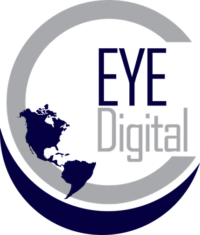Introduction:
In the dynamic landscape of life sciences, where breakthrough innovations and cutting-edge technologies emerge regularly, effective marketing is crucial for companies to stand out, build credibility, and connect with their target audience. This blog post explores the unique challenges and opportunities in marketing for life science companies and provides insights into crafting successful strategies.
Understanding the Life Science Ecosystem:
Life science companies operate within a complex ecosystem that includes researchers, healthcare professionals, regulatory bodies, and, ultimately, end-users. Successful marketing begins with a deep understanding of this ecosystem and the specific needs, challenges, and motivations of each stakeholder group.
Building a Strong Online Presence:
In the digital age, an online presence is non-negotiable for any industry, including life sciences. A well-designed website with clear messaging, user-friendly navigation, and informative content is the foundation of your online presence. Leverage social media platforms to engage with your audience, share industry insights, and showcase your company’s expertise.
Content Marketing for Life Sciences:
Content marketing is a powerful tool for life science companies to establish thought leadership and build trust. Create high-quality, educational content such as blog posts, whitepapers, case studies, and infographics. Address industry challenges, highlight your company’s achievements, and share valuable insights that resonate with your target audience.
Utilizing Search Engine Optimization (SEO):
Implementing effective SEO strategies is essential to ensure that your company’s website ranks high in search engine results. Conduct thorough keyword research related to your products or services and optimize your website’s content accordingly. This will increase your visibility, drive organic traffic, and position your company as an authoritative source in the life science field.
Engaging in Email Marketing:
Email marketing remains a reliable channel for life science companies to nurture leads, share updates, and maintain communication with stakeholders. Develop targeted email campaigns that provide relevant content, industry news, and information about your products or services. Personalize your messages to cater to the specific needs and interests of your audience.
Collaborating with Influencers and Key Opinion Leaders (KOLs):
In the life science industry, collaboration with influencers and key opinion leaders can significantly impact your company’s reputation. Identify and engage with individuals who have a strong influence in your niche. Their endorsement can boost your credibility, increase brand awareness, and foster trust among your target audience.
Leveraging Traditional Marketing Channels:
While digital marketing is crucial, traditional channels should not be overlooked. Attend industry conferences, trade shows, and networking events to establish face-to-face connections. Invest in well-designed print materials and advertisements to complement your online efforts.
Conclusion:
Effective marketing for life science companies requires a holistic approach that combines digital strategies with traditional methods. By understanding the unique dynamics of the life science ecosystem, building a strong online presence, producing valuable content, and engaging with key stakeholders, your company can navigate the complex journey from the lab to the market successfully. Remember, in the competitive world of life sciences, strategic and targeted marketing is the key to long-term success.

